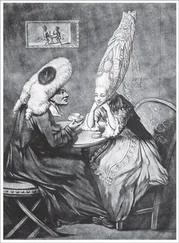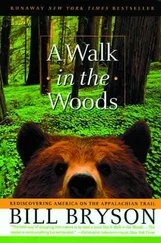Bill Bryson - Notes from a small Island
Здесь есть возможность читать онлайн «Bill Bryson - Notes from a small Island» весь текст электронной книги совершенно бесплатно (целиком полную версию без сокращений). В некоторых случаях можно слушать аудио, скачать через торрент в формате fb2 и присутствует краткое содержание. Жанр: Современная проза, на английском языке. Описание произведения, (предисловие) а так же отзывы посетителей доступны на портале библиотеки ЛибКат.
- Название:Notes from a small Island
- Автор:
- Жанр:
- Год:неизвестен
- ISBN:нет данных
- Рейтинг книги:4 / 5. Голосов: 2
-
Избранное:Добавить в избранное
- Отзывы:
-
Ваша оценка:
- 80
- 1
- 2
- 3
- 4
- 5
Notes from a small Island: краткое содержание, описание и аннотация
Предлагаем к чтению аннотацию, описание, краткое содержание или предисловие (зависит от того, что написал сам автор книги «Notes from a small Island»). Если вы не нашли необходимую информацию о книге — напишите в комментариях, мы постараемся отыскать её.
Notes from a small Island — читать онлайн бесплатно полную книгу (весь текст) целиком
Ниже представлен текст книги, разбитый по страницам. Система сохранения места последней прочитанной страницы, позволяет с удобством читать онлайн бесплатно книгу «Notes from a small Island», без необходимости каждый раз заново искать на чём Вы остановились. Поставьте закладку, и сможете в любой момент перейти на страницу, на которой закончили чтение.
Интервал:
Закладка:
The whole of this area is a kind of archaeological site of the nottoodistant past. A mile or so away, up an overgrown track, is the site of Milner Field, an ornate palace of stone built by Titus Salt Junior in 1870 at a time when the Salt family fortunes seemed boundless and perpetually secure. But weren't they in for a surprise? In 1893, the textile trade went into a sudden slump, leaving the Salts dangerously overextended, and the family abruptly lost control of the firm. In consternation and shame, they had to sell the house, mill and associated holdings. Then began a strange and sinister series of events. Without apparent exception all the subsequent owners of Milner Field suffered odd and devastating setbacks. One whacked himself in the foot with a golf club and died when the wound turned gangrenous. Another came home to find his young bride engaged in an unseemly bout of naked bedtop wrestling rwith a business associate. He shot the associate or possibly both of them accounts vary but in any case he certainly made a mess of the bedroom and was taken off to have his neck stretched.
Before long the house developed a reputation as a place where you could reliably expect to come a cropper. People moved in and abruptly moved out again, with ashen faces and terrible wounds. By 1930, when the house went on the market one last time, no buyer could be found for it. It stayed empty for twenty years, and finally in 1950 it was pulled down. Now the site is overgrown and weedy, and you could walk past it without ever guessing that one of the finest houses in the North had once stood here. But if you poke about in the tall grass, as we did now, you can find one of the old conservatory floors, made of neatly patterned black and white tiles. It was strangely reminiscent of the Roman mosaic I had seen at Winchcombe, and scarcely less astonishing.
It seemed remarkable to think that a century ago Titus Salt Junior could have stood on this spot, in a splendid house, looking down the Aire Valley to the distant but formidable Salt's Mill, clanging away and filling the air with steamy smoke, and beyond it the sprawl of the richest centre of woollen trade in the world, and that now it could all be gone. What would old Titus Senior think, I wondered, if you brought him back and showed him that the family fortune was spent and his busy factory was now full of stylish chrome housewares and wooftah paintings of naked male swimmers with glistening buttocks?
We stood for a long time on this lonely summit. You can see for miles across Airedale from up there, with its crowded towns and houses climbing up the steep hillsides to the bleak upland fells, and I found myself wondering, as I often do when I stand on a northern hillside, what all those people in all those houses do. There used to be scores of mills all up and down Airedale ten or more in Bingley alone and now they are virtually all gone, torn down to make room for supermarkets or converted into heritage centres, blocks of flats or shopping complexes. French's Mill, Bingley's last surviving textile factory, had closed a year or two before and now sat forlorn with broken windows.One of the great surprises to me upon moving North was discovering the extent to which it felt like another country. Partly it was from the look and feel of the North the high, open moors and big skies, the wandering drystone walls, the grimy mill towns, the snug stone villages of the Dales and Lakes and partly, of course, it was to do with the accents, the different words, the refreshing if sometimes startling frankness of speech. Partly it was also to do with the way Southerners and Northerners were so extraordinarily, sometimes defiantly, ignorant of the geography of the other end of the country. It used to astonish me, working on newspapers in London, how often you could call out a question like 'Which of the Yorkshires is Halifax in?' and be met with a tableful of blank frowns. And when I moved North and told people that I'd previously lived in Surrey near Windsor, I often got the same look a kind of nervous uncertainty, as if they were afraid I was going to say, 'Now you show me on the map just where that is.'
Mostly what differentiated the North from the South, however, was the exceptional sense of economic loss, of greatness passed, when you drove through places like Preston or Blackburn or stood on a hillside like this. If you draw an angled line between Bristol and the Wash, you divide the country into two halves with roughly 27 million people on each side. Between 1980 and 1985, in the southern half they lost 103,600 jobs. In the northern half in the same period they lost 1,032,000 jobs, almost exactly ten times as many. And still the factories are shutting. Turn on the local television news any evening and at least half of it will be devoted to factory closures (and the other half will be about a cat stuck up a tree somewhere; there is truly nothing direr than local television aews). So I ask again: what do all those people in all those houses do and what, more to the point, will their children do?
We walked out of the grounds along another track towards Eldwick, past a large and flamboyant gatehouse, and David made a crestfallen noise. 'I used to have a friend who lived there,' he said. Now it was crumbling, its windows and doorways bricked up, a sad waste of a fine structure. Beside it, an old walled garden was neglected and overgrown.
Across the road, David pointed out the house where Fred Hoyle had grown up. In his autobiography (It'll Start Getting Cold Any Minute Now, Just You See), Hoyle recalls how he used to see servants in white gloves going in and out the gate of Milner Field, but is mysteriously silent on all the scandal and tragedy that was happening beyond the high wall. I had spent .3 on his autobiography in a secondhand bookshop in the certain expectation that the early chapters would be full of accounts of gunfire and midnight screams, so you can imagine my disappointment.
A bit further on, we passed three large blocks of council flats, which were not only ugly and remote but positioned in such an odd and careless way that, although they stood on an open hillside, the tenants didn't actually get a view. They had, David told me, won many architectural awards.
As we ambled into Bingley down a curving slope, David told me about his childhood there in the Forties and Fifties. He painted an attractive picture of happy times spent going to the pictures ('Wednesdays to the Hippodrome, Fridays to the Myrtle'), eating fish and chips out of newspapers, listening to Dick Barton and Top of the Form on the radio a magic lost world of halfday closings, second posts, people on bicycles, endless summers. The Bingley he described was a confident, prosperous cog at the heart of a proud and mighty empire, with busy factories and a lively centre full of cinemas, tearooms and interesting shops, which was strikingly at odds with the dowdy, trafficfrazzled, knockedabout place we were passing into now. The Myrtle and Hippodrome had shut years before. The Hippodrome had been taken over by a Woolworth's, but that, too, was now long gone. Today there isn't a cinema in Bingley or much of anything else to make you want to go there. The centre of the town is towered over by the forbidding presence of the Bradford and Bingley Building Society not a particularly awful building as these things go, but hopelessly out of scale with the town around it. Between it and a truly squalid 1960s brick shopping precinct, the centre of Bingley has had its character destroyed beyond repair. So it came as a pleasant surprise to find that beyond its central core Bingley remains a delightful spot.
We walked past a school and a golf course to a place called Beckfoot Farm, a pretty stone cottage in a dell beside a burbling beck. The main Bradford road was only a few hundred yards away, but it was another, premotorized century back here. We followed a shady riverside path, which was exceedingly fetching in the mild sunshine. There used to be a factory here where they rendered fat, David told me. It had the most awful smell, and the water always had a horrible rustycreamy colour with a skin of frothy gunge on it. Now the river was sparkling green and healthylooking and thespot seemed totally untouched by either time or industry. The old factory had been scrubbed up and gutted and turned into a block of stylish flats. We walked up to a place called FiveRise Locks, where the LeedstoLiverpool Canal climbs a hundred feet or so in five quick stages, and had a look at the broken windows beyond the razorwire perimeter of French's Mill. Then, feeling as if we had exhausted pretty much all that Bingley had to offer, we went to a convivial pub called the Old White Horse and drank a very large amount of beer, which is what we had both had in mind all along.
Читать дальшеИнтервал:
Закладка:
Похожие книги на «Notes from a small Island»
Представляем Вашему вниманию похожие книги на «Notes from a small Island» списком для выбора. Мы отобрали схожую по названию и смыслу литературу в надежде предоставить читателям больше вариантов отыскать новые, интересные, ещё непрочитанные произведения.
Обсуждение, отзывы о книге «Notes from a small Island» и просто собственные мнения читателей. Оставьте ваши комментарии, напишите, что Вы думаете о произведении, его смысле или главных героях. Укажите что конкретно понравилось, а что нет, и почему Вы так считаете.












